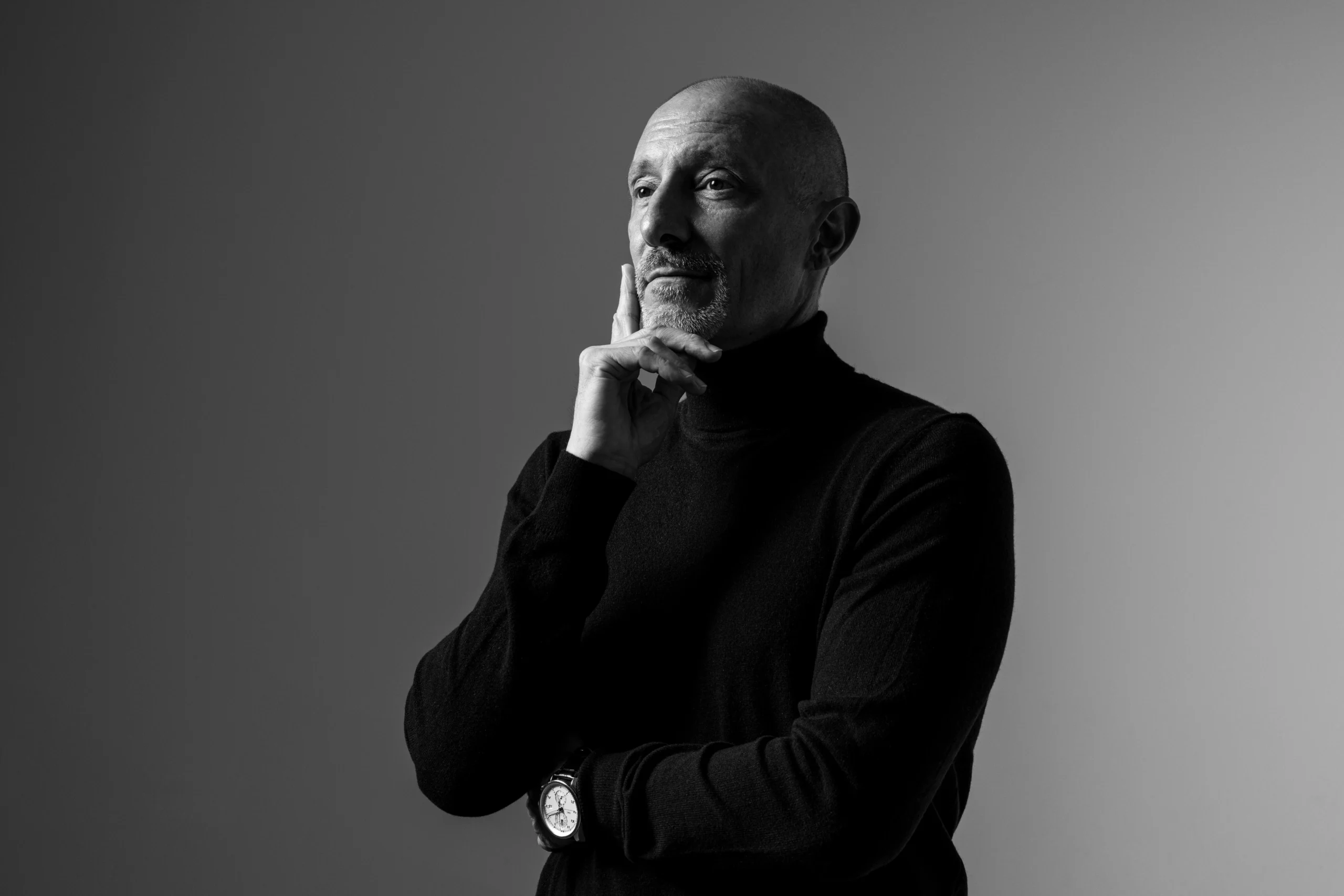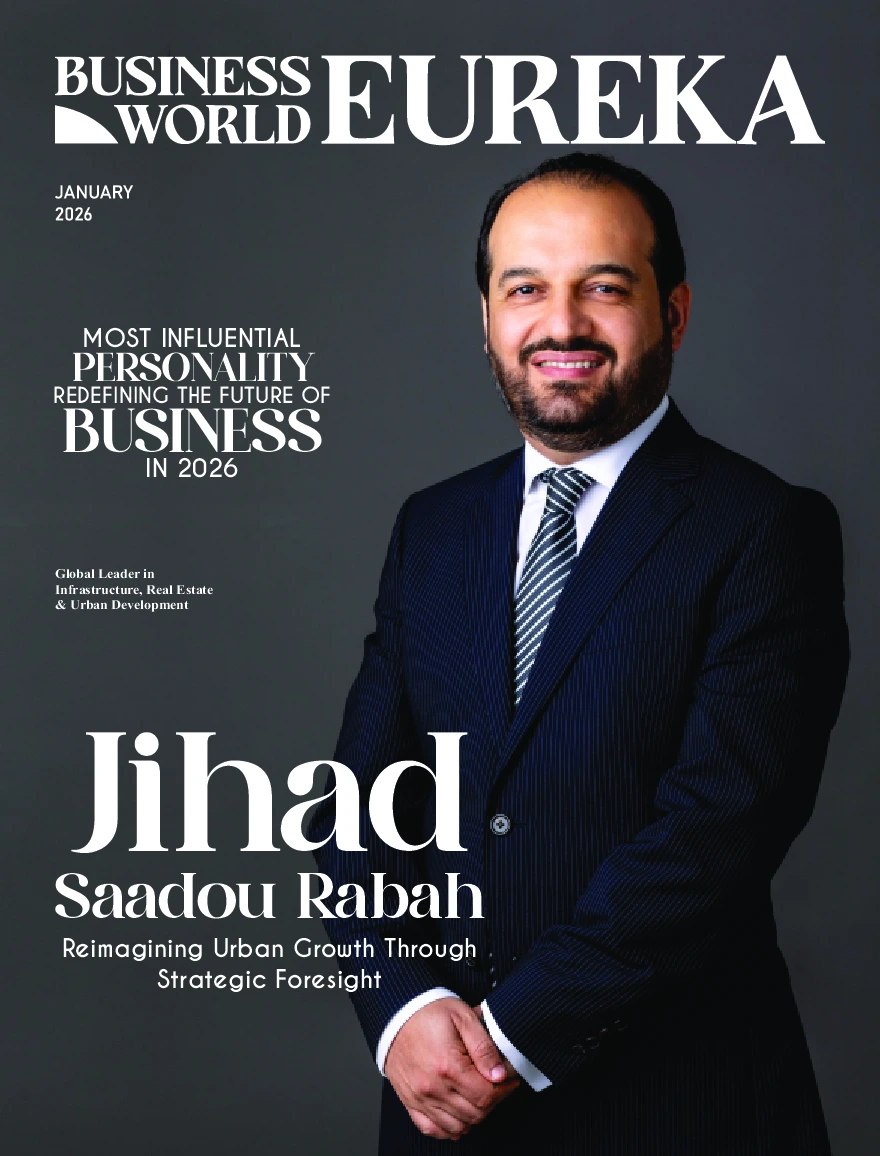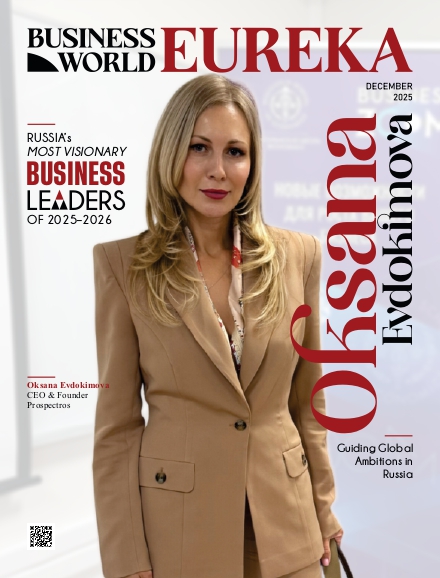David Fiorucci: Shaping the DNA of Modern Leadership

Leadership, once confined to the rigid structures of command and control, is undergoing a radical transformation. In today’s world, the true power of leadership lies not in authority, but in the ability to inspire, connect, and empower. It’s about creating environments where individuals aren’t just following orders, but actively contributing to a shared vision. Leadership has evolved from being a solo endeavor to a collective force, where collaboration fuels innovation and trust is the foundation upon which everything is built.
David Fiorucci has embraced this shift, dedicating his career to shaping a leadership approach that mirrors this transformation. As the CEO and Founder of LP3 Ltd., he developed the LP³ Leadership framework and the Octocracy model to guide leaders in navigating this new landscape.
Pioneering a New Era of Leadership
David Fiorucci’s focus on leadership as his area of expertise stems from a lifelong dedication to understanding how individuals can inspire and organize others to achieve meaningful goals. With a career spanning over three decades, he has held leadership roles in multinational organizations and engaged in collaborations across Europe, Asia, and other regions. This extensive experience across diverse industries and cultures has provided him with a deep understanding of the universal principles of human motivation, as well as the nuanced cultural dynamics that influence leadership styles.
David’s journey led to the development of LP³ Leadership, a framework that emphasizes coherence, simplicity, and empowerment. This framework serves as the foundation of Octocracy, his innovative leadership model. Through his work, he has championed the idea that leadership is not merely about directing others but about serving, understanding, and uniting people around a shared purpose. David’s personal and professional journey continues to shape his vision of leadership, inspiring others to embrace these principles in their own pursuits.
Reimagining Leadership for a Dynamic World
As an author and TEDx speaker, David focuses on conveying the importance of evolving leadership to meet the demands of an increasingly complex and volatile world. He emphasizes the shift from hierarchy-focused leadership to collaboration-centered approaches. Central to his teachings is the Octocracy model, inspired by the octopus—a symbol of agility, distributed intelligence, and coherence.
David highlights the critical role of psychological safety in fostering innovation and resilience. He underscores the power of shared language and the necessity for leaders to create environments where individuals can thrive without fear of failure. By encouraging leaders to view themselves as enablers of collective intelligence, David seeks to inspire a reimagining of leadership roles, adapting them to the profound changes of the modern era.
During the COVID-19 pandemic, David faced a defining moment in his career, guiding clients through rapid organizational transformations to navigate unprecedented challenges. The heightened uncertainty demanded bold yet empathetic leadership. Drawing on the principles of Octocracy, David helped organizations strike a balance between autonomy and clarity, enabling resilience and innovation in the face of the crisis.
This pivotal experience underscored the importance of clarity of purpose, transparent communication, and empowering teams to take ownership during times of adversity. It reinforced his belief that these elements are essential for leaders to successfully navigate turbulent periods.
Crafting Leadership for a Resilient, Inclusive, and Agile Future
David believes that effective leadership in today’s fast-paced, ever-changing environment is defined by resilience, adaptability, and the ability to inspire trust. He emphasizes that leaders must demonstrate emotional intelligence, cultural sensitivity, and a visionary mindset to navigate the complexities of global challenges.
Beyond technical expertise, David highlights the importance of embracing the human aspect of leadership. He advocates for fostering inclusion, empowering teams, and cultivating environments where individuals feel valued and engaged, ensuring organizations can thrive amidst constant change.
David observes that leadership has undergone significant evolution, particularly with the rise of remote work and the increasing focus on diversity and inclusion. He notes that remote work has shifted leadership priorities toward outcome-based approaches, emphasizing trust and decentralized decision-making.
David also highlights how diversity and inclusion have brought the need for creating psychologically safe environments to the forefront. These spaces celebrate diverse perspectives and integrate them into organizational strategies. He believes that Octocracy captures these changes by promoting distributed leadership and shared accountability, fostering inclusivity and agility in today’s dynamic landscape.
Beyond Authority and Inborn Traits
David identifies one of the biggest misconceptions about leadership as equating it with authority. He emphasizes that true leadership is not about issuing commands but about inspiring and mobilizing individuals toward a shared vision.
Another common misconception, according to David, is the belief that leaders are born rather than made. He underscores that leadership is a skill developed through experience, reflection, and continuous learning. Through his work, David seeks to dispel these myths, showing that leadership is accessible to anyone willing to nurture self-awareness, empathy, and resilience.
Leadership to Fit Every Unique Challenge
David emphasizes the importance of tailoring his approach to the unique challenges, cultures, and objectives of each organization he works with. He begins by gaining a deep understanding of the specific context, allowing him to adapt his strategies effectively.
Using his LP³ Leadership framework, David identifies existing leadership dynamics and aligns his recommendations with the organization’s needs. For example, in tech-driven industries, his focus might center on fostering innovation and agility. In more traditional sectors, he places emphasis on navigating change and integrating new leadership paradigms. The flexibility of his Octocracy model ensures its applicability across diverse industries and organizational contexts.
“At the heart of my work is the belief that leadership is about creating environments where people can thrive—where trust, collaboration, and adaptability take center stage.”
Cultivating Emotional Intelligence and Resilience
David underscores the critical role of emotional intelligence (EI) in effective leadership and integrates its development into his leadership training programs. He helps leaders cultivate EI through structured self-awareness exercises, active listening techniques, and constructive feedback processes.
A key part of David’s approach involves guiding leaders to recognize their emotional triggers and empathize deeply with the experiences of others. At LP³ Ltd., EI training is a cornerstone of leadership development, as it directly impacts trust-building, communication, and conflict resolution. David emphasizes that EI is essential for authentic connections, fostering collaboration, and ultimately driving the success of teams and organizations.
David emphasizes that failure is an integral and valuable part of the leadership journey. He guides leaders to perceive setbacks not as insurmountable obstacles but as opportunities for introspection and growth. By implementing structured feedback loops and conducting thorough post-mortem analyses, David helps leaders extract actionable lessons from their experiences. This approach fosters a mindset shift, enabling leaders to embrace failure as a catalyst for resilience, innovation, and continuous development.
When addressing the balance between decisiveness and collaboration, David advocates for cultivating a culture of shared ownership alongside clear accountability. He believes that leaders should encourage open dialogue and collective input while maintaining the ability to make timely and well-informed decisions. In his Octocracy model, this balance is achieved by aligning teams with a unified vision and empowering them to operate autonomously within defined boundaries. This framework ensures that organizations remain agile and adaptive without compromising coherence or direction.
Suspended Time: A Sanctuary for Leadership and Reflection
The organization’s Suspended Time Project provides an immersive, reflective space for leaders, allowing them to step away from their daily duties and re-center their perspectives. The project focuses on three core actions: personal development, family life, and societal contribution, encouraging leaders to reconnect with their purpose and envision their impact on the world. The setting for this transformative experience is the LP³ Building, a modern monastery designed to foster reflection and change. It is equipped with facilities that encourage both individual reflection and communal collaboration.
The LP³ Building is a physical manifestation of David’s leadership ethos—combining nature, elements, and sustainability in a harmonious structure designed for introspection and growth. The building’s inner courtyard features a labyrinth and a central fountain, creating a space for leaders to reflect. Surrounding the courtyard, a path of reflection invites peaceful contemplation, and the surrounding park features walking paths and a vegetable garden to ensure both physical and mental nourishment. The building’s architecture merges wood, glass, and metal, offering a serene environment that fosters clarity and deep thinking.
Embracing Humanity, Technology, and Purpose
David envisions the future of leadership as becoming increasingly human-centric and technology-driven. Emerging trends, such as AI-enhanced decision-making, a growing emphasis on sustainability, and the shift toward decentralized organizational structures, will redefine leadership roles. Leaders will need to adapt quickly to these changes, demonstrating agility and integrity while fostering collaboration across both digital and physical environments. His Octocracy model offers a framework for this evolving future, where adaptability and cohesion work together seamlessly.
For aspiring leaders and speakers, David advises embracing curiosity, authenticity, and purpose. He encourages individuals to invest in self-awareness, seek continuous feedback, and actively pursue learning opportunities. He emphasizes the importance of developing a clear, value-driven vision that resonates with others. As a speaker, David suggests focusing on authentic storytelling that connects with the audience, creating value and inspiration. Leadership, he believes, is not about achieving perfection but about making progress and growing alongside your team.
“I believe leadership is a skill, not an innate trait. Anyone can lead, as long as they are willing to learn, grow, and evolve continuously.”
Explore more insightful articles, interviews, industry news, and business magazines on our website. Click here to stay informed and inspired!
-
 05 Feb 2026 magazinesMost Influential Personality Redefining the Future of Business in 2026
05 Feb 2026 magazinesMost Influential Personality Redefining the Future of Business in 2026 -
 02 Jan 2026 magazinesWorld's Most Inspiring Keynote Speakers to Watch in 2025–26
02 Jan 2026 magazinesWorld's Most Inspiring Keynote Speakers to Watch in 2025–26 -
 19 Dec 2025 magazinesRussia’s Most Visionary Business Leaders of 2025–2026
19 Dec 2025 magazinesRussia’s Most Visionary Business Leaders of 2025–2026 -
 02 Dec 2025 magazinesSheroes: UK's Most Visionary Leader Making Their Mark in the Global Education Landscape, 2025–26
02 Dec 2025 magazinesSheroes: UK's Most Visionary Leader Making Their Mark in the Global Education Landscape, 2025–26 -
 30 Nov 2025 magazinesEurope’s Most Influential Business Leaders to Watch in 2025-26
30 Nov 2025 magazinesEurope’s Most Influential Business Leaders to Watch in 2025-26 -
04 Nov 2025 magazinesUK's Most Influential Personalities to Follow in 2025
-
30 Oct 2025 magazinesSheros: Egypt’s Most Visionary Women Leaders to Watch in 2025
-
01 Oct 2025 magazinesThe Power List: 5 Women Leaders Leading in 2025




